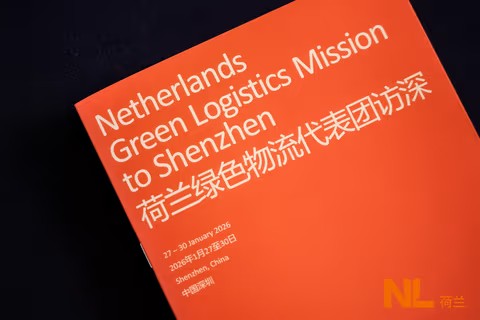Navigating China’s Labor Market Shifts: Strategic Insights for European Companies
China’s labor market is undergoing rapid transformation, driven by post-pandemic recovery, talent shortages, and evolving employer-employee dynamics. These changes are reshaping hiring practices, workforce management, and compliance requirements, presenting both challenges and opportunities for European companies operating in China. In the following lines, we will outline the key developments and offer actionable strategies to navigate these shifts effectively.
Current state of China’s labor market
Post-pandemic recovery
The global post-pandemic recovery has brought substantial economic shifts, and China is no exception. Initially, COVID-19 disruptions caused unemployment rates to rise sharply, particularly in labor-intensive sectors like manufacturing and services. However, according to the National Bureau of Statistics (2023), China’s urban unemployment rate has since stabilized at 5.0%, signaling steady recovery. Export-driven industries, such as electronics manufacturing, have played a significant role in this rebound.
Sectoral shifts
China’s industries are increasingly shifting toward advanced and technology-driven operations. According to a report by the International Renewable Energy Agency (IRENA) in 2023, China is leading global employment in renewable energy sectors, accounting for 63% of the world’s renewable energy jobs, particularly in solar PV and electric vehicle manufacturing. Specific roles such as battery engineers and semiconductor specialists are now in high demand as these industries expand.
Demographic challenges
China’s aging population is creating significant challenges for the labor market. According to the 2023 “National Report on Aging Development” by the Ministry of Civil Affairs, 21.1% of the population was aged 60 or above by the end of 2023, marking a sharp demographic shift toward an aging society. This trend has exacerbated labor shortages in industries dependent on younger workers, such as hospitality and retail. The World Bank further emphasizes that a shrinking working-age population limits labor supply and constrains economic growth potential.
Key challenges
Talent shortages
Despite having a large labor pool, certain industries in China face acute skill shortages. The renewable energy sector, including solar and wind energy, is experiencing rapid expansion. According to the International Renewable Energy Agency (IRENA), China accounted for 63% of the world’s renewable energy jobs in 2023, particularly in manufacturing roles. However, finding specialized talent such as engineers and technicians remains a challenge due to the pace of industry growth.
Similarly, according to the South China Morning Post (October 2024), Chinese tech firms in innovation hubs like Shenzhen and Shanghai are scrambling to recruit top AI talent amid a significant shortfall. Reports indicate that for every five new AI-related positions, only two qualified candidates are available, reflecting a severe talent gap in these rapidly growing sectors. Moreover, local governments, such as Shanghai’s, have intensified efforts to attract global AI talent to meet their ambitious goals of becoming key AI innovation centers by 2025.
“China’s green and tech sectors are booming, but the talent just isn’t keeping up,” says Roland Brouwer, Corporate & International Relations Director at BIPO. “European companies active in China need to think long-term—train locally and move fast to grab the right people.”
Workplace cultural shifts
China’s younger workforce is redefining workplace expectations, prioritizing work-life balance and meaningful employment. The Financial Times (December 2023) reported on trends like “lying flat” (躺平) where employees value autonomy and personal growth over traditional metrics such as overtime pay. Companies must adapt their workplace strategies to attract and retain this younger, values-driven workforce.
“Younger workers in China want more than just a paycheck—they want purpose and flexibility,” says Roland Brouwer, Corporate & International Relations Director at BIPO. “If European firms can offer that and stay on top of new labor rules, they’ll stand out.”
Labor regulation updates
China has introduced new regulations to standardize gig markets, also known as a gig economy marketplace, focusing on flexible employment and worker rights. The Ministry of Human Resources and Social Security’s January 2024 directive requires local governments to integrate gig markets into public employment systems, offering job-matching, skills training, and workplace protections. For European companies, these reforms create opportunities to access a broader talent pool while ensuring regulatory compliance. Aligning with these standards can enhance workforce strategies and sustain operational stability in China’s competitive market.
Opportunities for European companies
Meeting employee expectations
European companies are recognized for their employee-centric practices, particularly in fostering sustainable work environments and offering career development opportunities. For instance, Bosch China has implemented flexible working arrangements through its “Flexible Working” initiative, systematically combining remote and on-site work to adapt to modern employment trends. Additionally, Bosch has invested over 1 billion euros in employee training over the past five years to support skill development and career advancement. These initiatives have led to increased employee satisfaction and retention, reinforcing the appeal of European firms in the Chinese labor market.
Policy support
The Chinese government actively encourages foreign investment in high-tech sectors and has introduced a series of policy measures to optimize the foreign investment environment. In July 2023, the State Council issued guidelines aimed at supporting the establishment of R&D centers by foreign-invested enterprises and encouraging joint technological research and industrial application projects between foreign companies and domestic enterprises.
Digital transformation in recruitment
The integration of digital tools and AI into recruitment processes is becoming essential for companies operating in China. According to the 2024 Talent Reports: Insights and Actions for the Age of AI by LinkedIn, leveraging AI-driven recruitment platforms has become a game-changer for talent acquisition teams. These tools are increasingly used to personalize candidate outreach, source top talent, and match employees with open roles more efficiently. For example, LinkedIn’s report highlights how AI-enabled systems are empowering organizations to streamline recruitment workflows and reduce time-to-hire, ensuring companies can secure the best talent in competitive labor markets.

Conclusion
China’s evolving labor market presents both challenges and opportunities for European companies. Addressing talent shortages, navigating regulatory complexities, and aligning with the changing expectations of a younger workforce are essential for success. By leveraging strengths in sustainability, employee-centric practices, and technological innovation, European firms can establish resilient and sustainable operations in China. Proactive engagement and tailored strategies will be key to securing a competitive edge in this dynamic market.
To stay competitive in China’s fast-changing labor market, European companies must act now—by upskilling local talent, embracing flexible work models, and staying ahead of regulatory changes. Navigating these shifts can be complex, which is why partnering with a trusted expert like BIPO is key. With deep local insight and end-to-end HR solutions, BIPO helps you build compliant, future-ready teams in China—faster and smarter.
About BIPO
Established in 2010 and headquartered in Singapore, BIPO is a global payroll and people solutions provider. Designed for businesses of any size from SMEs to MNCs, our total HR solutions include Human Capital Management solutions, Global Payroll Outsourcing, and Employer of Record service across 160+ global markets.
To discover your opportunities in China’s labour market, get in touch with Ronald Brouwer, Corporate & International Relations Director at BIPO, roland.brouwer@biposervice.com.




